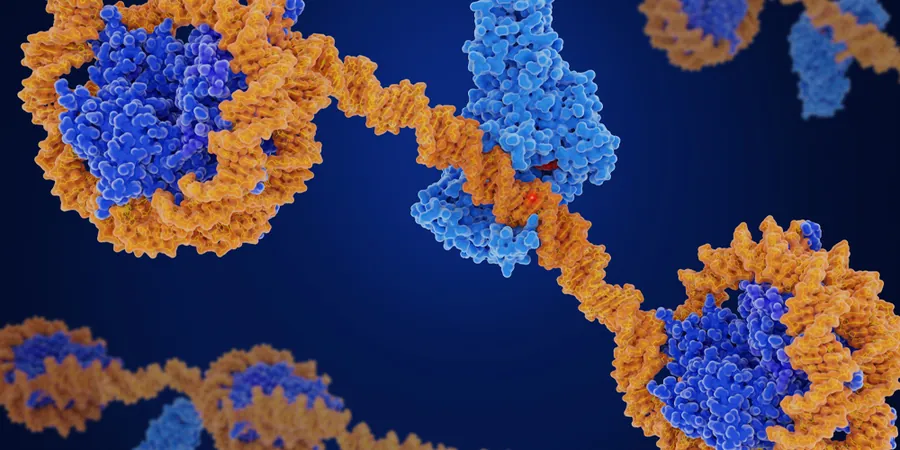
Revolutionary CRISPR Epigenome Editor Paves the Way for Neurodevelopmental Therapies!
2025-04-25
Author: John Tan
Unlocking the Secrets of Epigenetics
Imagine changing gene expression without ever touching the DNA itself! That's the groundbreaking essence of epigenetics, which studies how behaviors and environmental influences can modify gene expression. At the forefront of this revolution is a new CRISPR-based tool designed to edit neuron epigenomes, showcased at the American Society for Biochemistry and Molecular Biology 2025 Annual Meeting.
A Breakthrough for Neurological Disorders
This innovative technology focuses on DNA methylation, which is crucial for regulating neuronal genomes. By adding a methyl group, genetic information can be silenced or activated, influencing vital brain functions. Disruptions in these methylation patterns are often linked to neurodevelopmental disorders like Rett Syndrome, yet the mechanisms behind these changes remain shrouded in mystery.
Trailblazing Research at UC Berkeley
Under the tutelage of Assistant Professor James Nuñez at UC Berkeley, undergraduate researcher Bernardo Moreno is harnessing the power of CRISPR and dCas9 (a non-cutting variant of Cas9) to alter genes in neurons without incisions. Using guide RNAs, they can strategically direct the addition or removal of methylation through advanced protein delivery.
Safe and Effective Delivery System
Unlike traditional DNA or RNA delivery methods, which carry risks of unintended effects, their protein-based system boasts a shorter half-life, minimizing safety concerns. By utilizing virus-like particles (VLPs) to encapsulate these proteins, the team has successfully navigated the hurdles of delivering CRISPR epigenome editors into neurons, a feat previously deemed nearly impossible.
Presenting Cutting-Edge Findings
Moreno will unveil his pioneering research on rewiring DNA methylation in neurons derived from induced pluripotent stem cells (iPSCs) at the ASBMB 2025 conference in Chicago on April 14. The team has set their sights on targeting tau, a protein linked to neurofibrillary tangles and Alzheimer’s disease, demonstrating a promising reduction in tau levels following treatment.
A Bright Future for Epigenetic Therapies
Looking ahead, the team aims to simulate neurodevelopmental disorders to further understand methylation dynamics. Their ambitious goal is to ultimately translate these findings into animal models and human therapies. Moreno points out that the same strategies could potentially knock down genes involved in cholesterol production, extending the therapeutic promise of this approach.
A Thriving Field of Epigenetic Innovation
Excitement buzzes in the biotechnology industry, as several companies are diving into epigenetic editing, signaling a bright future for this evolving field. With evidence emerging from animal models proving that epigenetic tools can target disease-related genes without altering DNA sequences, the possibilities seem endless. This is truly an exhilarating time to be part of the epigenetic revolution!


 Brasil (PT)
Brasil (PT)
 Canada (EN)
Canada (EN)
 Chile (ES)
Chile (ES)
 Česko (CS)
Česko (CS)
 대한민국 (KO)
대한민국 (KO)
 España (ES)
España (ES)
 France (FR)
France (FR)
 Hong Kong (EN)
Hong Kong (EN)
 Italia (IT)
Italia (IT)
 日本 (JA)
日本 (JA)
 Magyarország (HU)
Magyarország (HU)
 Norge (NO)
Norge (NO)
 Polska (PL)
Polska (PL)
 Schweiz (DE)
Schweiz (DE)
 Singapore (EN)
Singapore (EN)
 Sverige (SV)
Sverige (SV)
 Suomi (FI)
Suomi (FI)
 Türkiye (TR)
Türkiye (TR)
 الإمارات العربية المتحدة (AR)
الإمارات العربية المتحدة (AR)